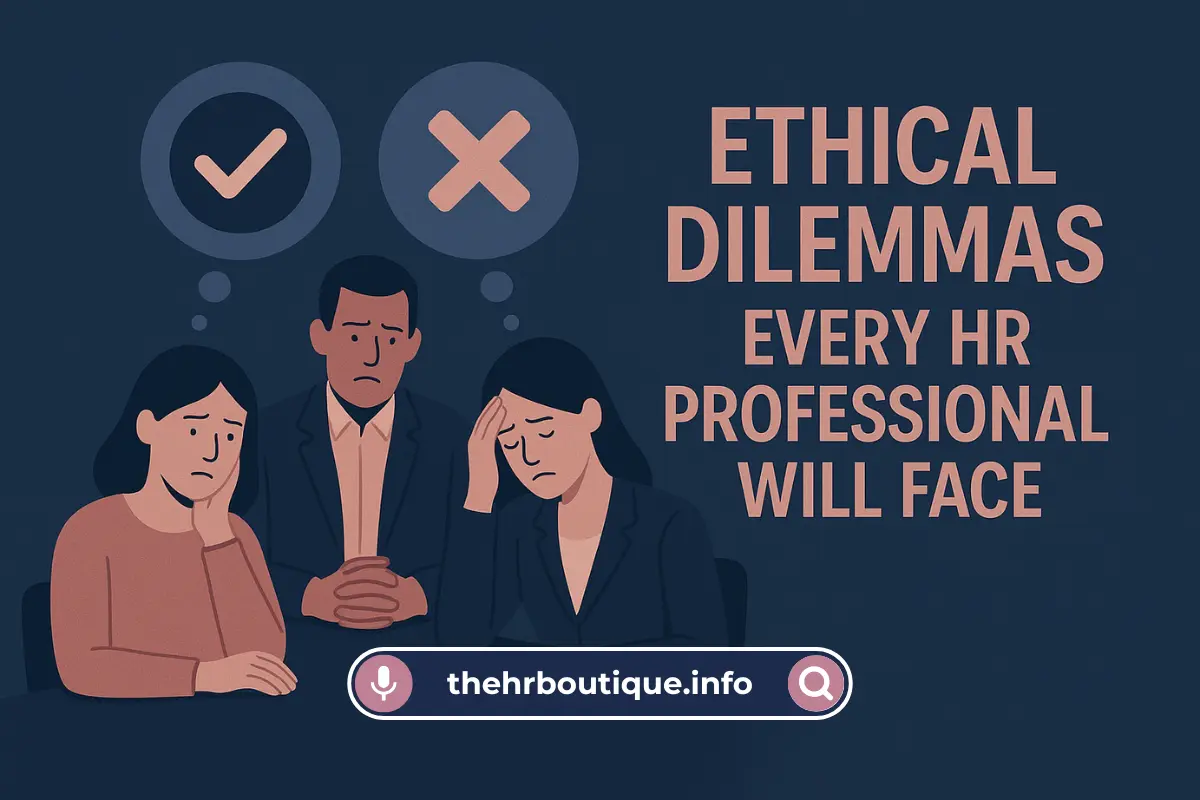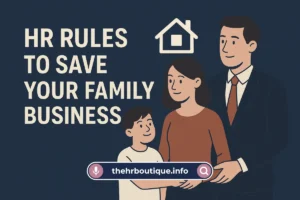Hey there, fellow HR warrior. Let’s have a real talk – none of that polished corporate nonsense. I’ve been in the trenches for over a decade, and let me tell you, nothing prepares you for the ethical gut punches this job throws your way.
When the Policy Manual Doesn’t Cover Real Life
Remember that time Janice from accounting started coming in late every Tuesday? Turns out her husband’s chemo appointments were Tuesday mornings. But company policy says three lates and you’re written up. Now what?
Here’s how I handled that mess:
- First, I bought myself time. “Let me look into this” beats a knee-jerk reaction any day.
- Then I actually talked to Janice like a human being (shocking concept, I know).
- Finally, I went to bat with leadership to adjust the damn policy.
The kicker? We ended up implementing a “life happens” clause that’s saved our butts multiple times since.
The Harassment Complaint That Makes Your Stomach Drop
Nothing gets your blood pumping like when someone says “We need to talk about Mark from marketing.” Especially when Mark brings in 40% of the company’s revenue.
I’ll never forget Sarah, the junior designer who quietly told me about Mark’s “harmless” comments that made her skin crawl. The look in her eyes? Pure terror that she’d just torpedoed her career.
What worked:
- Taking notes like my job depended on it (because it did).
- Keeping my poker face when the CEO groaned “Not Mark.”
- Reminding everyone that no one’s revenue numbers cover a lawsuit.
“In HR, you’re either part of the solution or part of the lawsuit. Choose wisely.”
When Big Brother Goes Too Far
Our IT department once proudly showed me their new employee monitoring software. They could track:
- Keystrokes per minute
- Mouse movements
- Even inactive time (because God forbid someone thinks for five minutes)
I nearly laughed when it flagged our top developer as “unproductive.” Turns out the guy solves complex problems by staring at the ceiling. Who knew?
How we fixed it:
- Made monitoring opt-in for certain roles only.
- Actually asked employees what would help them work better.
- Threw out the most ridiculous metrics (goodbye, keystroke counting).
The Layoff That Broke My Heart
30% staff reduction. The worst part? Watching Greg, a 58-year-old with two kids in college, clean out his desk while the 28-year-old CEO talked about “leaner operations” from his Tesla.
What I wish I’d done differently:
- Fought harder for severance packages.
- Set up proper outplacement services.
- Called out the hypocrisy when leadership kept their bonuses.
Pro tip: How you treat people on their worst day is how they’ll remember your company forever.
When Nepotism Walks In The Door
Nothing kills morale faster than watching the boss’s nephew fail upward. I once saw a kid fresh out of college get promoted over five qualified women because “he’s got leadership potential.”
How I (eventually) handled it:
- Started requiring actual interview panels.
- Implemented skills testing for promotions.
- Made sure the nephew’s “mentor” (read: babysitter) was someone who wouldn’t sugarcoat feedback.
The Whistleblower’s Dilemma
When accounting found discrepancies and Rachel spoke up, she became “difficult to work with” overnight. The sudden performance concerns were almost impressive in their transparency.
What actually helped:
- Anonymous reporting channels (finally implemented after this mess).
- Clear anti-retaliation policies with actual teeth.
- Me personally checking in with Rachel weekly (she left anyway, but at least with a glowing reference).
The Ugly Truth About HR
Here’s what they don’t teach you in certification programs:
You’ll lose sleep over decisions that keep employees up at night.
Sometimes doing the right thing means pissing off the wrong people.
That policy manual? It’s a guideline, not a holy text.
My survival tips:
- Document everything like you’re preparing for court (because you might be).
- Build alliances with leaders who actually care about people.
- Know when to stand your ground and when to pick your battles.
- Keep emergency chocolate in your desk (trust me on this one).
At the end of the day, we’re not just policy enforcers – we’re the ones who make sure work doesn’t completely suck for real human beings. And that’s worth the headaches. Most days.





